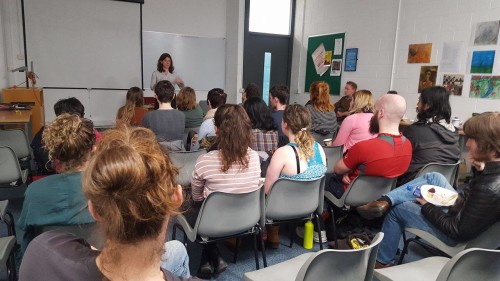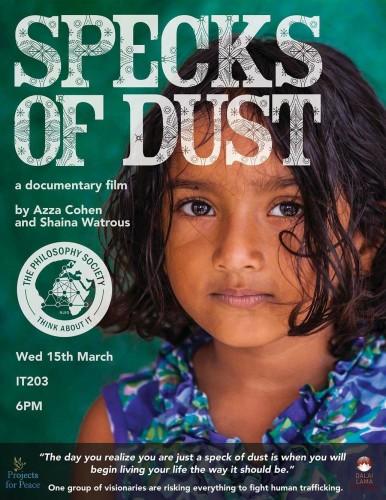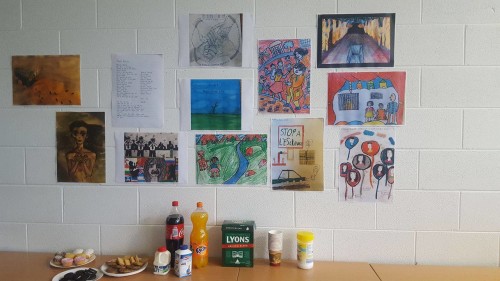There’s one thing that never gets old for me as a filmmaker. That moment: lights up.
When the film ends and the lights come up, there is a brief, intimate moment that every single person in the room lives through, together; we all adjust back to the reality where the film has dropped us. Our pupils constrict and we glance around at each other. We know that, despite our differences, there’s one thing that binds us: the story we just witnessed. I cherish this moment every single time.
Last week, some friends and I organized a screening of my film, Specks of Dust, which profiles a group of Indian activists fighting human trafficking along the India-Nepal border. It’s no light subject for a Wednesday evening tea. I was thrilled with the turnout and with the discussion afterwards. As the event was co-hosted by the Philosophy Society, the topics ranged from the actual production of the film to whether prostitution is inherently amoral, or if humankind could theoretically or literally achieve gender equality.
The National University of Ireland, Galway (NUIG) is a dynamic institution, with lots of student societies and ways to get involved. As graduate students, though, we rarely dive into these opportunities. We’re only here for one year. We did this in undergrad and now we’re too old. We’ve readings to read and writings to write.
My recent involvement with the Philosophy Society has challenged this, though, and filled that student-club-sized hole in my academic experience. I am immensely glad for this opportunity and hope to keep the conversation going.
We often screen Specks of Dust as part of a larger curricular movement with two goals: (1) to complicate the Western media narrative of India’s problem of human trafficking through subtler personal stories and (2) to engage with audiences’ desire for service work by investigating the most profound and effective ways to do good in the world, as inspired by the film’s protagonists.
For this screening, we held a discussion around the film itself, but also included an exhibition of artworks as part of the FREEDOM NOW campaign, recently launched by the film’s protagonists. FREEDOM NOW enables conversations about human trafficking through prompting children to draw or write about their feelings on the subject. So we displayed twelve works of children’s art, each illuminating and moving. One piece illustrates human bodies in a factory-like supply chain. One indicates a van full of women driving away from footprints on a dusty road. One drawing features a single flower and proclaims: “Humans shouldn’t be picked like flowers.”
Ireland, as a country, is like a human rights incubator. Many famous activists and large international non-profits are based here, as well as a large percentage of peacekeeping forces. Ireland also, of course, struggles with a dodgy record of human rights abuses within its own powerful institutions, but in my experience here, the Irish are incredibly and forcefully forthright about making progressive reform. NUIG in particular is a fiery campus, with intense debate and impressive student participation.
When the lights come up, there’s always a moment where the audience is unsure what to do next. Clap? Talk? Debrief? I hope that my experience in Ireland continues this feeling of “lights up”—that shining a light on human rights issues is essential, and that these is the place to have these conversations.



